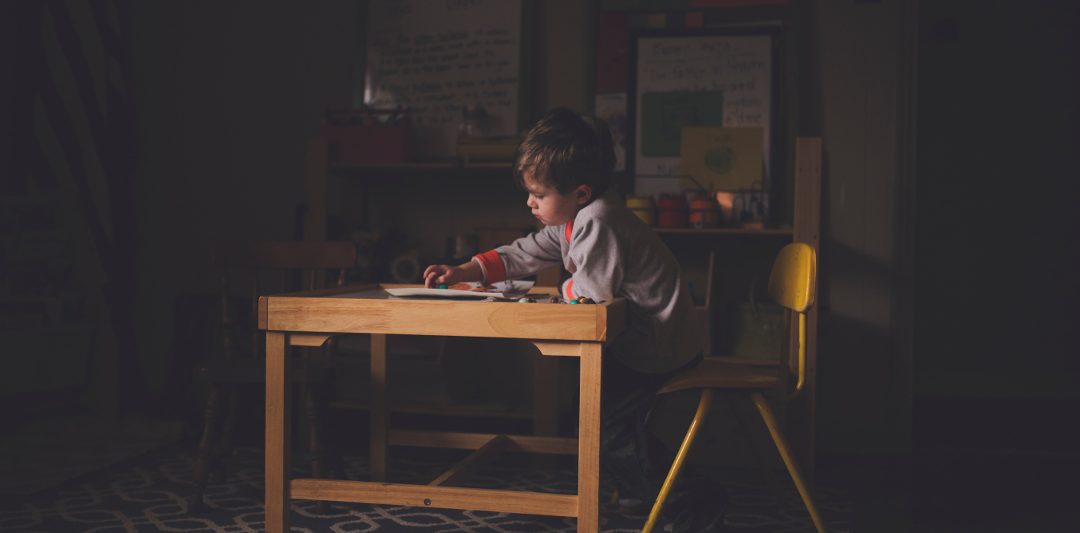Blog Series from members of our board of directors. This entry is written by Mr. Andrew Witmer.
Several years ago I read a strange and wonderful book called The Poetics of Space. Published in the 1950s by the French philosopher Gaston Bachelard, this book has changed the way I think about spaces of every kind, from the house where I grew up to the classrooms where I teach.
While the book resists summarization, its key insight is that the spaces we inhabit act upon us. Bachelard focuses on childhood homes, claiming that “the house we were born in is physically inscribed in us.” So successfully do such spaces train our bodies, he writes, that even after the passage of decades, we “would push the door that creaks with the same gesture, we would find our way in the dark to the distant attic. The feel of the tiniest latch has remained in our hands.”
For Bachelard, houses work their way into our thoughts and dreams and imaginations as well as our bodies. For good and ill, our ideas and feelings about “home” and “intimacy” and “shelter” are formed in our experience of a particular house. Our buildings, you might say, build us.
Bachelard does not argue that our physical surroundings determine our character. We all know that it is possible to be good in a bad house and bad in a good house, to praise God in a prison and curse him in a cathedral. Christians get this. We often note that the church is its people, not its building. Every year we marvel that Jesus was born in a stable rather than a mansion.
But if the spaces we inhabit do not determine character, they can surely assist in its formation, and we miss something important when we ignore their influence. As one writer has put it, architecture “offers suggestions instead of making laws.” The “suggestion” of a cathedral, as anyone who has ever visited one knows, is that God, who is very big, should be approached with reverence and awe by human beings, who are very small. The “suggestion” of a large classroom where I frequently teach, with its chairs bolted to the floor and facing forward, is that discussion among students is not an essential part of education. I can attempt to ignore this suggestion, but it is much harder to facilitate meaningful discussion when I am working against the room itself.
Something similar is true of domestic spaces. In Evicted, a riveting account of contemporary urban poverty, sociologist Matthew Desmond details the devastating physical and psychological consequences of poor housing. “Substandard housing,” he reports, “was a blow to your psychological health: not only because things like dampness, mold, and overcrowding could bring about depression but also because of what living in awful conditions told you about yourself.” Desmond reveals the difficulties of families locked in antagonistic relationships with not only their landlords but also their houses, desperate struggles in which “The house failed the tenants, and the tenants failed the house.” But Desmond also describes the effects of a new apartment on a recovering addict whose downward slide had been accelerated by substandard housing: “The apartment made Scott feel affirmed, deserving of something better. It motivated him.”
The Christian story prompts us to think wisely about how the spaces we inhabit shape and mold us. God’s good creation of the physical world, including human bodies, teaches us that he cares about materiality as well as spirituality. We see the same thing in Exodus 31, where God states that he has filled a craftsman with his Spirit to cut stone, carve wood, and work in metal for the tabernacle. Jesus’ incarnation and resurrection show that God is so intent on renewing creation that he actually entered into it in order to heal it from the inside. The Bible teaches us to hope not for escape from materiality but fellowship with God in a “new heavens and a new earth.”
I suspect that our dreams of home are part of our deeper longing for the renewal of the fallen creation. When Ruby, a teenager whose story is told in Evicted, occasionally fled her run-down house for a few hours at the local library, she played a computer game that let her design and furnish a beautiful home with “clean, light-reflecting floors, a bed with sheets andpillowcases, and a desk for doing schoolwork.” Such dreams express basic human yearnings. Perhaps the popularity of home improvement shows owes partly to our longing to see ugly things become beautiful, and to the promises of wholeness and intimacy and security made by a good house. To think carefully about the ways our buildings build us, our children, and our neighbors is to open new opportunities for participating in God’s work of renewing the world.

